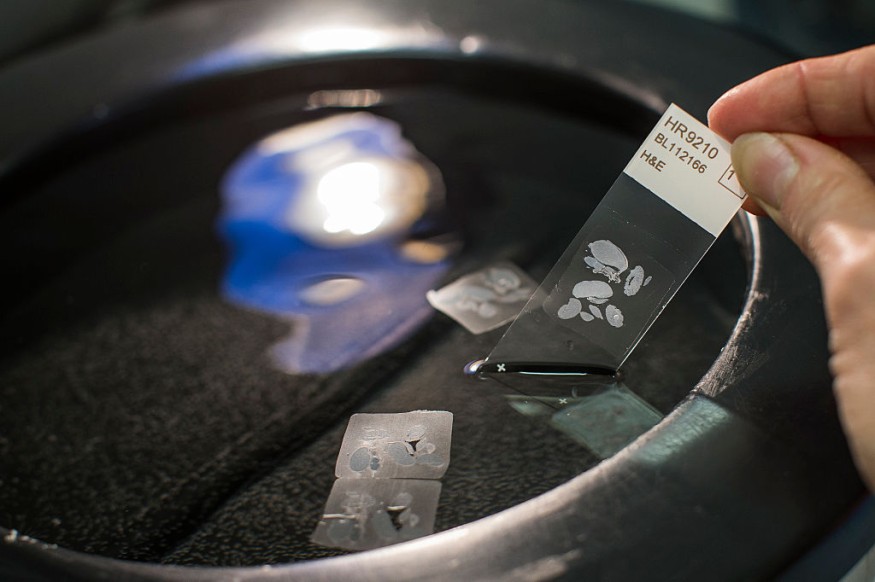Pancreatic cancer is one of the many types of cancer that result in significant deaths with no cure in sight.
However, a potential breakthrough study conducted by researchers from the UK used the so-called "two-in-one pancreatic cancer treatment."
The combined treatment has shown significant results, but it is not yet complete to be a pancreatic cancer cure.
Potential Breakthrough in the Fight Against Pancreatic Cancer

Researchers from the UK have developed the two-in-one pancreatic cancer treatment that could significantly improve the survival of pancreatic cancer patients.
Scientists reportedly hailed the development as the "biggest ever" breakthrough when it comes to pancreatic cancer treatment.
The researchers published their study in the Journal of the Royal Society on July 7, 2021.
The study was made by researchers from the Institute of Cancer Research in London, UK, with yhe researchers saying it is potentially the most significant breakthrough against pancreatic cancer.
The researchers have only tested the treatment on mice. Thus, if the so-called two-in-one pancreatic cancer treatment becomes successful in human trials, it could be available for widespread use within five years, as per the study.
Also read : CRISPR Can Make Cancer Cells Kill Cancer
Two-in-One Pancreatic Cancer Treatment
The researchers conducted tests on mice with pancreatic cancer tumors.
The tests involved a combination of two treatments, immunotherapy and High-Intensity Focused Ultrasound (HIFU).
These treatments are collectively known as the two-in-one pancreatic cancer treatment.
First, researchers applied the immunotherapy treatment containing a drug that energizes the immune system to fight cancer cells. The treatment made this possible due to the drug's ability to block proteins that prevent the immune system from attacking cancer cells.
Due to the thick layer of pancreatic cancer tumors, the drug from the immunotherapy treatment is unable to penetrate the cancer cell's thick tumor walls, but that is until the HIFU treatment was applied.
Thus, the researchers used the HIFU treatment-which involved the emission of pulses of sound waves to blast open the tumors.
The sound waves from the HIFU treatment punctured holes in the pancreatic cancer tumor's protective barrier, allowing the immunotherapy drug to get in.
As a result, mice test subjects who received both the immunotherapy and HIFU treatments have increased their survival rate by 40%.
Mice test subjects lived longer by 25% when given only the HIFU treatment. Meanwhile, 35% of mice subjects lived longer when given only the immunotherapy treatment.
The research results were commended by the scientific community but indicated that further research is needed for it to be applied to humans and for it to be an official cure against pancreatic cancer.
Researchers are yet to conduct human trials for pancreatic cancer treatment.
Pancreatic Cancer Statistics
According to the study made by UK researchers, pancreatic cancer is characterized by a poor prognosis and a high mortality rate.
The majority of patients with pancreatic cancer are only diagnosed with the disease at an advanced stage already, including stage 4 pancreatic cancer.
In the UK, approximately 8,800 people are diagnosed with pancreatic cancer, and 8,700 people from this diagnosis die from the disease each year, according to the Pancreatic Cancer UK organization.
Given the statistical data, it shows that 98% of pancreatic cancer patients die from the disease.
Pancreatic cancer is the 5th cancer killer across the UK.
In the US, between 60,000 and 90,000 people were diagnosed with pancreatic cancer over recent years.
The American Cancer Society stated the average lifetime risk of pancreatic cancer is about 1 out of 64 people.
The American Cancer Society explained the survival rate from pancreatic cancer will depend on certain risk factors, including the current stage of pancreatic cancer, with stage 1 being the lowest.
Furthermore, the organization estimated around 62,210 people will be diagnosed with pancreatic cancer across the US in 2022, while about 49,830 people with this diagnosis will die from pancreatic cancer.
Related article : High-Calorie Food Raise Deadly Pancreatic Cancer Risk
© 2026 NatureWorldNews.com All rights reserved. Do not reproduce without permission.





